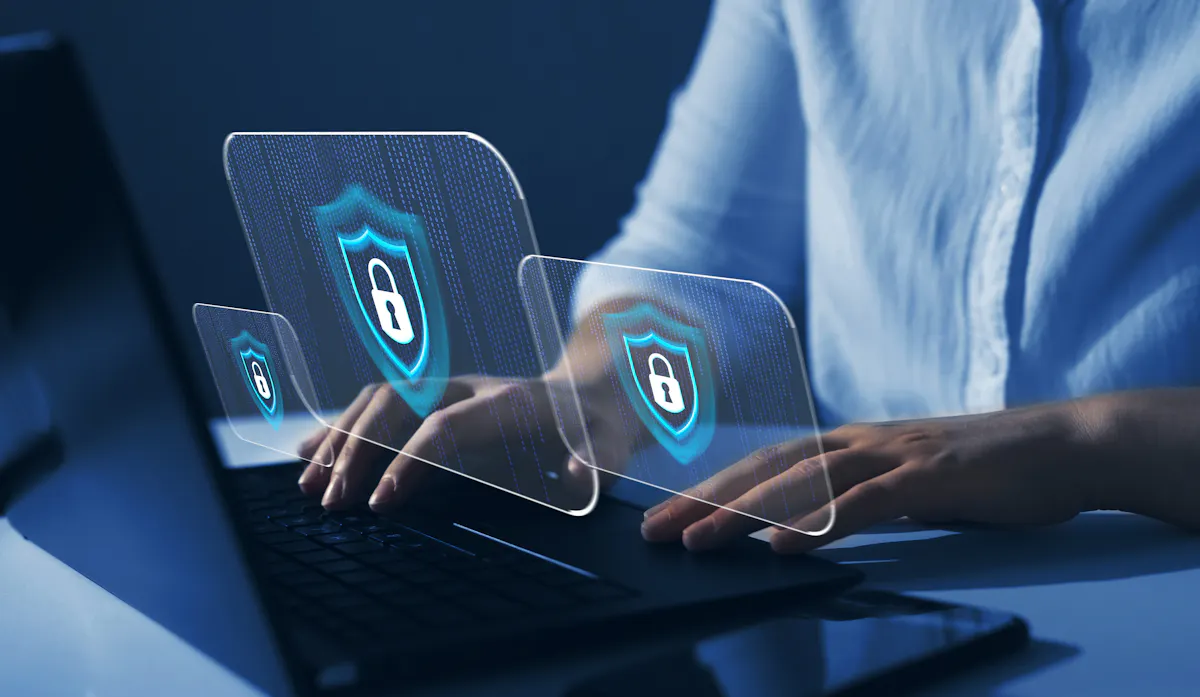Cybersecurity Bootcamps in Seattle Guide
Nestled in the heart of the Pacific Northwest, Seattle is a technological metropolis defined by innovation, the iconic Space Needle, and a vibrant community. Home to industry giants like Amazon and Microsoft, Seattle's tech prowess reverberates worldwide. As the city breathes life into groundbreaking technologies, the need for cybersecurity professionals becomes more critical than ever.
In a landscape where technology shapes the city's future, Seattle faces an increasing demand for skilled cybersecurity professionals. The ever-expanding tech ecosystem has heightened the vulnerability to cyber threats, creating a pressing need for professionals who can safeguard digital landscapes. As the city thrives on data-driven innovations, the call for cybersecurity roles echoes across its skyline. From safeguarding sensitive information to fortifying networks against cyber threats, the demand for cybersecurity professionals in Seattle is robust and continually growing.
The U.S. Bureau of Labor Statistics states that the cybersecurity field offers significant job opportunities, projecting a 29% growth for cybersecurity analyst roles from 2024 to 2034—much above the average for all occupations. If you're interested in fighting cybercrime and protecting assets in the digital world, then attending a cybersecurity bootcamp in Seattle to learn cutting-edge skills might be your next step.
Getting Started with Cybersecurity Careers in Seattle
Start your journey into the field of cybersecurity with our comprehensive guide tailored for aspiring Seattle tech professionals. Whether you're a tech enthusiast, a recent graduate, or a professional navigating the ever-evolving tech landscape, this guide is your compass to cybersecurity in Seattle.
The demand for cybersecurity professionals has surged. This guide provides valuable insights into cybersecurity bootcamps in Seattle, which offer an accelerated pathway into the industry. Seattle's cybersecurity bootcamps cater to diverse skill levels, providing immersive experiences, hands-on learning, and a curriculum finely tuned to employers’ tech needs. Let’s explore the unique attributes, benefits, and transformative potential these bootcamps hold for your cybersecurity journey in Seattle.
What is a Cybersecurity Bootcamp?
A cybersecurity bootcamp is a dynamic career accelerator, equipping students with indispensable skills to mitigate cyber threats. Cybersecurity bootcamps in Seattle cater to aspiring professionals, offering swift pathways to acquire specialized expertise. These programs, tailored to different schedules and skill levels, may take place remotely or in person.
For instance, the Fullstack Academy Cybersecurity Bootcamp presents an immersive program with full-time and part-time options. This hands-on program helps individuals aiming to launch their cybersecurity career through its diverse benefits, including:
Comprehensive learning
Skill refinement
Networking opportunities
Job search assistance
The curriculum encompasses essential cybersecurity topics, including network security, ethical hacking, incident response, penetration testing, and generative AI applications in cybersecurity, among others. This enables cybersecurity aspirants to grasp network security, data protection, and cyberattack responses while gaining the career success support required to launch or advance their careers in the cybersecurity field.
Why Choose a Cybersecurity Bootcamp?
Starting a cybersecurity career through a bootcamp comes with distinctive advantages that set it apart from traditional education. Here's why choosing a cybersecurity bootcamp is a strategic move:
Rapid Skill Acquisition: Cybersecurity bootcamps condense the learning process into a matter of months, allowing you to acquire in-demand skills swiftly. This rigorous, focused approach accelerates your journey into the cybersecurity landscape.
Practical Hands-On Experience: Prioritizing hands-on learning, bootcamps ensure you gain practical skills applicable to real-world scenarios. Simulations, labs, and real-time projects deepen your understanding and prepare you for the complexities of cybersecurity roles.
Industry-Relevant Curriculum: Bootcamps closely collaborate with industry professionals and employers to keep their curriculum updated with the latest trends and technologies. This ensures you're equipped with the most relevant and in-demand skills sought by employers.
Career Transition Support: Designed for career changers, cybersecurity bootcamps provide a focused curriculum that bridges the gap between your existing experience and the specific requirements of the cybersecurity field. This tailored approach facilitates a smooth transition into a new career.
Networking Opportunities: Bootcamps offer excellent networking opportunities with peers, instructors, and potential employers. Building a professional network during the program enhances your career prospects and opens doors to job opportunities in the cybersecurity sector.
Choosing a cybersecurity bootcamp means choosing a dynamic and efficient pathway to kickstart or advance your career in cybersecurity, providing you with the skills, knowledge, and network crucial for success.
Essential Cybersecurity Skills for Career Success
Landing a high-paying job in cybersecurity in Seattle requires more than just enthusiasm—it demands a specific, industry-aligned skill set that addresses the unique threats facing Seattle's giants, such as Microsoft, Amazon, and Boeing. A cybersecurity bootcamp in Seattle must prepare you not just for a job, but for the complex, specialized roles driving the job growth in this field.
Here are the essential technical and soft skills you must learn to grow in your cybersecurity career:
1. Offensive & Defensive Security
Tech employers in Seattle require skilled cybersecurity professionals who can utilize both offensive (red team) and defensive (blue team) stategies to protect their business.
Ethical Hacking and Penetration Testing: For the red team, the ability to "think like a hacker" is essential. This involves mastering the cyber kill chain methodology, learning reconnaissance and footprinting techniques, and executing Vulnerability Assessment and Penetration Testing (VAPT) to find and exploit system weaknesses before malicious actors do.
Security Operations and Incident Response: This is the core of blue team defense. You must be proficient in enterprise infrastructure security, including configuring network defense mechanisms and using tools for Security Information and Event Management (SIEM) and Security Orchestration, Automation, and Response (SOAR) for real-time monitoring and swift incident handling.
2. Cloud and Application Security
With most tech companies relying on cloud platforms, cloud security is a non-negotiable skill. You must understand how to secure virtualized environments and cloud-native applications. Furthermore, you need application security and cyber resilience skills, including learning concepts like encryption, Public Key Infrastructure (PKI), and addressing the OWASP Top 10 threats to secure web applications from the foundations.
3. Digital Forensics
You must have a strong command of operating systems and networking essentials to understand where vulnerabilities lie. This includes OS concepts (Windows and Linux) and networking principles. Just as critical are digital forensics and malware analysis—the skills to investigate and respond to attacks like ransomware and malware, determine the scope of a breach, and mitigate damage.
4. Generative AI and Automation
To stay relevant in the modern, AI-driven tech landscape, cybersecurity bootcamps in Seattle must integrate AI skills. Fullstack Academy covers the essentials of generative AI, teaching you prompt engineering and fine-tuning for security tasks. Crucially, you will learn generative AI in cybersecurity applications, using these tools for advanced threat analysis, incident response, and defense—a skill set that directly addresses the hiring needs of major tech companies in the region.
5. Essential Soft Skills
Alongside technical cybersecurity skills, prospective professionals should also be expanding the following soft skills:
Critical Thinking and Problem-Solving: Every security incident is like a puzzle. The ability to analyze complex data and develop creative solutions under pressure is essential.
Compliance and Risk Management: Understanding governance, risk, and compliance (GRC) frameworks is critical for aligning security with business objectives.
Effective Communication: You must be able to translate complex technical risks to non-technical stakeholders, a highly valued skill for any tech job role.
Typical Cybersecurity Salaries in Seattle
Understanding the typical salaries in cybersecurity roles is vital for those considering a career in this dynamic field. In Seattle, where the tech industry thrives, cybersecurity professionals command competitive salaries across various roles:
Computer Support Specialist: Computer Support Specialists in Seattle typically start with an average annual salary ranging from $63,000 to $99,000, according to ZipRecruiter. Entry-level positions often involve providing technical assistance to computer users.
IT Support Specialist: With a few years of experience, IT Support Specialists see a salary increase, ranging between $78,000 and $126,000 per year in Seattle [ZipRecruiter; Sep 2025]. These professionals handle day-to-day technology issues within organizations.
Network Engineer: Network engineers focusing on network infrastructure and security earn salaries ranging from $124,000 to $179,000 [ZipRecruiter; Sep 2025]. Higher levels of expertise and experience contribute to increased compensation.
Information Security Analyst: Information Security Analysts safeguarding an organization's computer systems and networks earn competitive salaries ranging from $109,000 to $179,000 [ZipRecruiter; Sep 2025].
Cybersecurity Analyst: Cybersecurity Analysts responsible for protecting systems from cyber threats can expect salaries of $113,064 and above in Seattle [ZipRecruiter; Sep 2025]. Advanced skills, experience, and technical mastery are key factors in reaching senior-level compensation.
The demand for proficient cybersecurity professionals mirrors the expanding digital landscape. Your endeavors, whether analyzing vulnerabilities, tracing breaches, or crafting security strategies, can be met with substantial compensation that underlines the vital role you play in ensuring digital resilience in Seattle.
Types of Cybersecurity Bootcamps in Seattle
As you explore the range of cybersecurity bootcamps in Seattle, you'll discover a variety of options tailored to meet specific learning needs and career aspirations. Choosing the right program is essential for your journey to become a cybersecurity professional. Here are key considerations to help you narrow down your choices:
Program Delivery: Online vs. In-Person: Decide whether you prefer the flexibility of online classes or the immersive experience of in-person sessions. Online programs offer flexibility, ideal for adult learners, while in-person options provide more immersive training.
Time Commitment: Full-Time vs. Part-Time: Assess the number of hours you can dedicate to the bootcamp per week. Full-time programs may require leaving a full-time job, while part-time options cater to those with existing commitments.
Specialization: Focused Areas: Consider if you want to specialize in areas like ethical hacking, incident response, or network security within the cybersecurity domain.
Career Preparation: Job Search Assistance: Look for programs that offer comprehensive career preparation, including job search assistance, career coaching, and the opportunity to earn industry-recognized certifications.
Now, let's explore specific options for cybersecurity bootcamps in Seattle.
Fullstack Academy Cybersecurity Bootcamps
Fullstack Academy, a renowned name in tech education, offers flexible programs designed to cater to diverse learning styles and schedules. With career simulations, practice labs, a final project, and industry-recognized certifications, the Fullstack Academy Cybersecurity Bootcamp in Seattle provides the practical skills essential for success in this critical field.
Full-Time Fullstack Academy Cybersecurity Bootcamp
Duration: 13 weeks
Format: Classes are held Monday through Friday
Ideal for those seeking immersive learning on an accelerated timeline
Part-Time Fullstack Academy Cybersecurity Bootcamp
Duration: 21 weeks
Format: Flexible class time options on a part-time basis
Ideal for those looking to balance work and other commitments with cybersecurity education
The Fullstack Academy Cybersecurity Bootcamp curriculum covers crucial technologies and concepts, ensuring a comprehensive understanding of cybersecurity principles, guided by career success coach providing support throughout your job search journey.
Top Employers Hiring in Seattle
Seattle boasts a dynamic job market for cybersecurity professionals. As you embark on your career in this field, it's essential to explore the top employers shaping the cybersecurity landscape in Seattle. Here are five leading companies actively seeking cybersecurity talent, according to Glassdoor:
T-Mobile: T-Mobile, a leading telecommunications company, prioritizes cybersecurity to protect its network and customer data. Cybersecurity professionals at T-Mobile work on safeguarding the company's networks and systems against evolving threats.
Amazon: Amazon is one of the world's largest e-commerce and cloud computing companies. Amazon offers diverse opportunities in cybersecurity.
Boeing: Boeing, a leader in aerospace, also places great emphasis on cybersecurity to protect its sensitive data and intellectual property. Cybersecurity roles at Boeing involve ensuring the security and resilience of critical aerospace systems.
Microsoft Corporation: As a global tech giant, Microsoft plays a pivotal role in shaping the technology landscape. The company's commitment to cybersecurity is evident through its continuous efforts to enhance security features across its products and services. Microsoft offers various roles cybersecurity roles, ranging from security analysts to engineers, providing an opportunity to work on cutting-edge projects.
Deloitte: As a professional services firm, Deloitte hires cybersecurity professionals in Seattle to serve its clients in this market, addressing the growing complexity of cyber threats and stringent regulatory requirements.
Exploring career opportunities with these top employers in Seattle positions cybersecurity enthusiasts for a rewarding and impactful career in this dynamic city.
Cybersecurity Events in Seattle
Stay ahead of the cybersecurity curve by engaging with industry events in Seattle. These gatherings provide invaluable opportunities to network with professionals, gain insights into emerging trends, and deepen your knowledge of the cybersecurity landscape. Here are some noteworthy cybersecurity events and groups in Seattle:
Cybersecurity Events and Groups in Seattle
Here are some of the cybersecurity events in Seattle that provide you with valuable opportunities to network, learn, and stay up-to-date with the ever-evolving cybersecurity landscape:
- INTERFACE Seattle: This conference includes various events to help cybersecurity professionals in Seattle network with their peers and share knowledge in various topics, such as information security, cloud, and disaster recovery, through presentations, panel discussions, and more.
FutureCon Cybersecurity Conference Seattle: This conference provides an opportunity to discover cutting-edge security approaches, understand the newest technology, and interact with the world’s security leaders.
SecureWorld Seattle 2025: The summit is designed for security professionals for affordable, high-quality training and education, which offers content and professional connections in the field of cybersecurity.
Cybersecurity Meetups in Seattle
In addition to the cybersecurity events, some of the meetups for cybersecurity professionals in Seattle to network and learn from each other are:
CSNP - Seattle CyberSecurity: The Seattle CyberSecurity group (SCS) provides opportunities for learning about the latest cyber threats, cyber threat intelligence, and cybersecurity opportunities. Participants gain knowledge about new cybersecurity attacks, solutions, and best practices.
Cloud Security Alliance, Seattle Chapter: This meetup enables individuals to network and discuss topics such as securing emerging technologies, how to secure microservices, zero-trust networks, and more.
Seattle Cyber Security for Control Systems: This group connects professionals in the Greater Seattle area with an interest in or responsibility for the cybersecurity of these systems.
Seattle Data, AI & Security: This group brings together a community of professionals, enthusiasts, and experts in data, AI and cybersecurity fields in Seattle.
Cybersecurity Bootcamp FAQs
1. How much time should I expect to invest weekly for full-time vs. part-time bootcamp formats?
For the Fullstack Academy Cybersecurity Bootcamp, full-time students should plan for an intensive 40+ hour per week commitment (about 13 weeks total), including class time and 8-10 hours of homework. Part-time students, who often work full-time, commit about 15-18 hours per week (about 21 weeks total)—9 hours of class and 6-8 hours of independent work. Both formats require significant dedication to succeed in a cybersecurity career.
2. Is it worth enrolling in a cybersecurity bootcamp instead of pursuing a degree?
A cybersecurity bootcamp in Seattle is a rigorous, cost-effective alternative to a traditional college degree, focused on building job-ready skills in a shorter period. While degrees offer broad theory, bootcamps like Fullstack Academy provide intensive, hands-on training and a CompTIA Security+ exam voucher, maximizing your ROI and allowing you to enter the high-demand cybersecurity Seattle job market much faster.
3. What will I learn in the Fullstack Academy Cybersecurity Bootcamp?
You'll gain both offensive (red team) and defensive (blue team) skills. The curriculum covers networking essentials, application security, ethical hacking, vulnerability assessment and penetration testing (VAPT), digital forensics, and SIEM tools. The program also includes specialized modules on generative AI in cybersecurity, preparing you for advanced threat analysis and defense techniques essential for a modern cybersecurity career.
4. What types of job roles can I pursue after graduating from the cybersecurity bootcamp?
Graduates of the cybersecurity bootcamps are prepared for entry-level roles such as computer systems specialist, IT support specialist, information security analyst, and more. The hands-on, genAI-integrated training gives you a distinct advantage in securing technical, in-demand roles in the growing tech industry.
Recommended Reading

How to Become a Cybersecurity Analyst

Information Security Analyst: Skills, Outlook, and Salary

The Role of AI in Cybersecurity: The Continuing Need for Cyber Professionals




